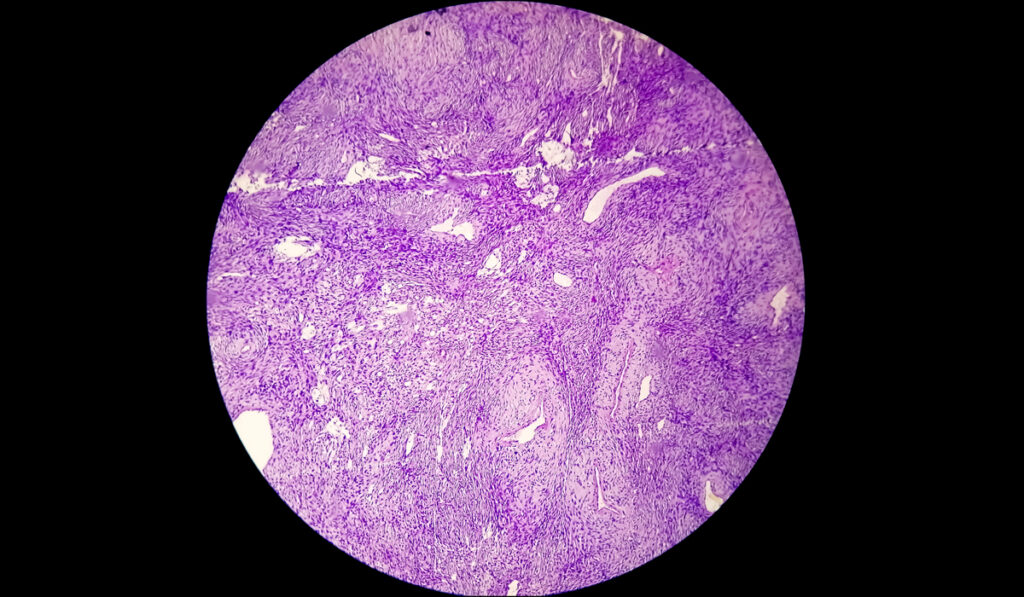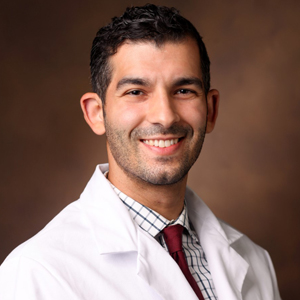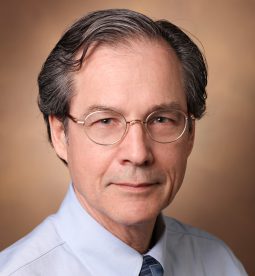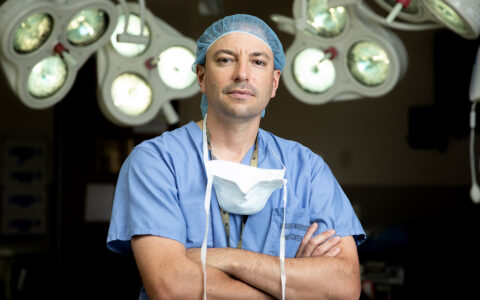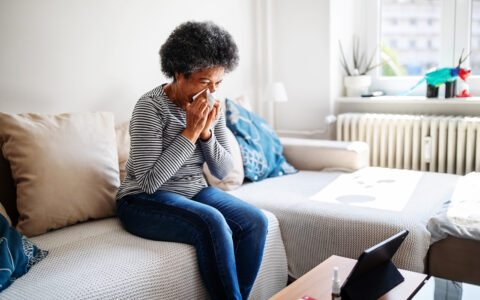A new program at Vanderbilt University Medical Center is focusing on care of patients with neurofibromatosis type 2 (NF2) by bringing together multiple specialists for quarterly clinics.
NF2 is an autosomal dominant disorder characterized by vestibular schwannomas, leading commonly to hearing loss and severe balance issues. Additionally, patients with NF2 can develop meningiomas and ependymomas, causing complex ear, eye and spine issues.
“We recognize that patients with NF type 2 are dealing with a host of issues that need to be followed closely by a multidisciplinary team,” said Kareem Tawfik, M.D., an assistant professor of otolaryngology-head and neck surgery, who is leading the effort.
“Many patients come to the medical center multiple times a year to see different specialists, and some of them travel long distances,” Tawfik added. “With this new clinical approach geared specifically to NF2, we hope to streamline care by bringing the specialists to the patients.”
“We hope to streamline care by bringing the specialists to the patients.”
NF2 Presentation and Treatment
While the hallmark of NF2 is acoustic neuromas, there are multiple conditions that can occur alongside these tumors in adults, including cataract and retinal disorders, spinal tumors and facial nerve paralysis requiring complex multispecialty care.
Pediatric patients, who represent 10 percent of cases, have more severe manifestations: a high burden of tumors, meningioma with seizures and monocular vision loss, and peripheral nerve disorders.
Not all NF2 patients require surgery; some can be treated with radiation or observation. Surgical timing and options depend on patient age and other medical issues, tumor size, and the functional impact of the tumors on hearing and balance, Tawfik said.
“The challenging part is that neurofibromatosis 2 is so variable in its severity and onset,” he explained. “Some acoustic neuromas are very slow-growing, and others grow incredibly fast. That’s why these patients need such close monitoring.”
Defragmenting Care of NF2
The two-day quarterly clinics bring together specialists in neurotology, otology, radiology, ophthalmology, neurology, neurosurgery, genetics, pediatrics, physical therapy, facial plastic surgery, pediatrics, audiology, neuroradiology, neuro-oncology, and head-and-neck oncology. Medical and surgical care is comprehensive and includes chemotherapeutic options, radiosurgery, surgical resection, cochlear implantation, and auditory brainstem implantation.
New and return NF2 patients undergo ancillary testing on the clinic’s first day, including MRIs, eye appointments, and any other tests needed to monitor intracranial and spinal tumors. The following day patients see appropriate specialists, with a care coordinator orchestrating all appointments.
“When we meet our patients in the clinic, we prepare beforehand by having a multidisciplinary care discussion, then we all go in to see the patient sequentially,” Tawfik said. “Our aim is to improve communication among specialists in a disease where care is often siloed.”
“Our aim is to improve communication among specialists in a disease where care is often siloed.”
Generating New Knowledge
Another aim of the NF2 clinic is to conduct research toward improving treatment, including outcomes studies and participation in clinical trials.
Several multicenter trials are advancing care for patients with NF2. Intravenous bevacizumab has been shown to improve hearing and MRI response rate. The phase 2 INTUITT-NF2 trial is evaluating brigatinib, a FAK inhibitor approved for lung cancer. Crizotinib, another FAK inhibitor, is in phase 2 trials in adults and children over six years. Selumetinib, a MEK inhibitor, has been approved by the FDA for NF treatment in both children and adults.
Paul Moots, M.D., a professor of neurology, and Jennifer Brault, M.D., an assistant professor of pediatrics, pediatric neurology and genetics at Monroe Carell Jr. Children’s Hospital at Vanderbilt, are co-directors of the Vanderbilt NF Clinic, which addresses all neurofibromatosis conditions and is an affiliate of the Children’s Tumor Foundation NF Clinic Network. The team is involved in clinical trials for NF patients.
In a virtual NF2 symposium presented by Vanderbilt specialists affiliated with the clinic, Moots and Brault encouraged patients and families to join the NF Registry, which will keep them apprised of new trials and treatments.
Moots notes a rise in interest in NF2 by both researchers and clinicians.
“There are many new treatments in or coming into clinical trials for NF2-related schwannomas,” he said. “In the next few years, there will certainly be more treatment options for all NF2 patients.”
